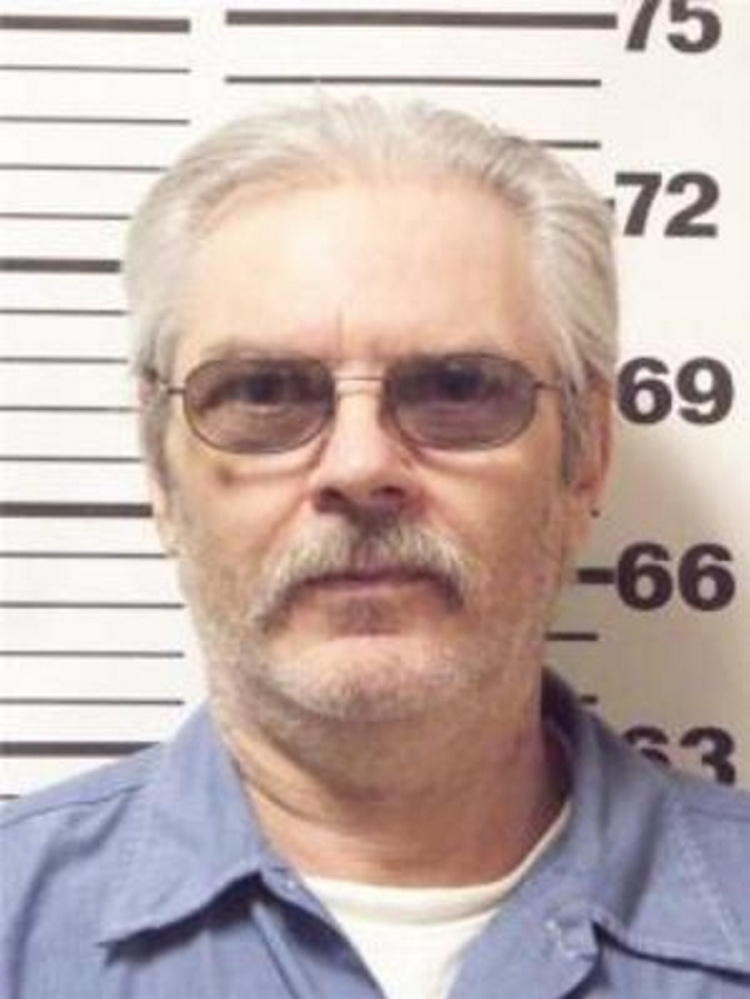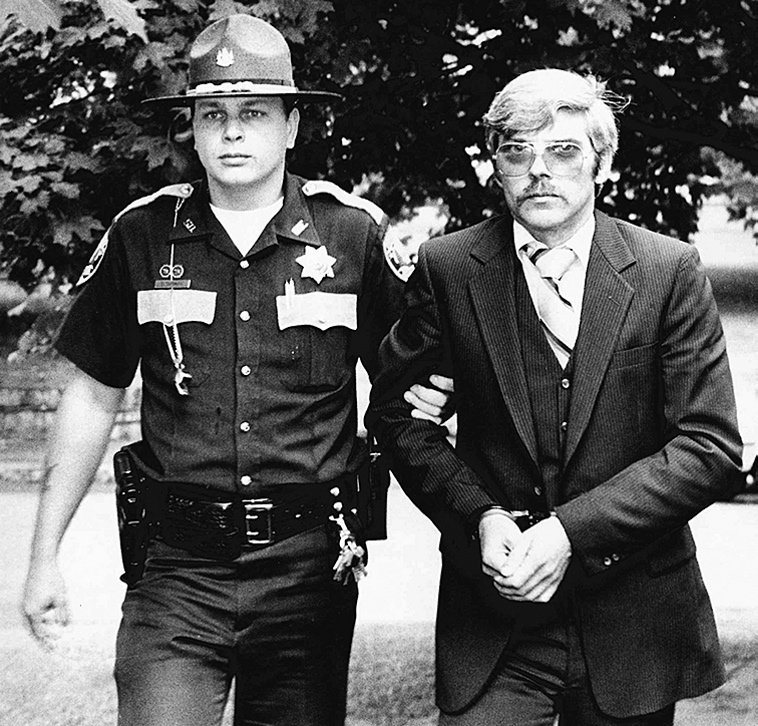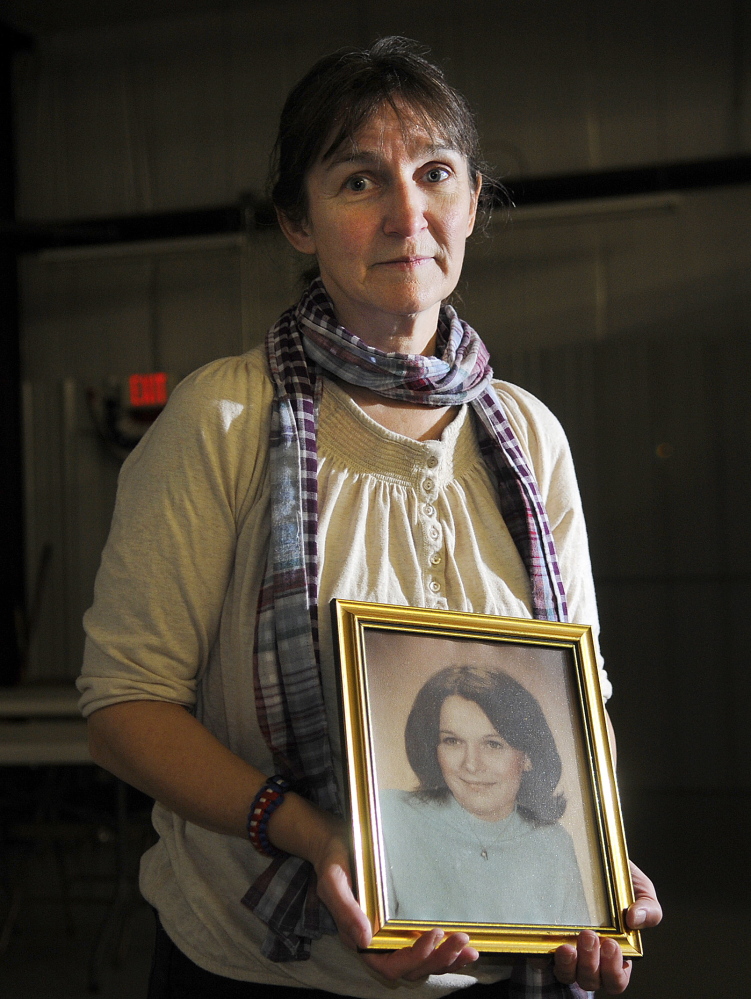Michael Boucher claims due process denied in May 2014
AUGUSTA — Convicted killer Michael M. Boucher Sr. lost his bid for parole and for a new parole hearing in a decision issued Thursday by a judge in Kennebec County.
Boucher, 65, was convicted in 1991 of the slaying of 18-year-old Debra Dill in Litchfield that occurred in 1973.
Boucher was sentenced to life in prison with parole in contrast to sentences today, which frequently are life without parole for those convicted of murder.
Boucher had contended that his rights were violated in connection with his May 2014 parole hearing, according to court documents filed by attorney Scott Hess. The parole board at that hearing denied Boucher’s parole request and indicated he could file a new request in five years.
Vicki Dill of West Gardiner, Debra Dill’s sister, attends the public portion of Boucher’s parole hearings with other members of her family and argues against letting Boucher out on parole.
She got the news about the denial Tuesday in a phone call from a victim/witness advocate in the Office of the Attorney General.
“It was sheer elation today,” Dill said. She said her mother, Janice Kelman of Gardiner, was elated too when she got the call. “It was a long wait,” Vicki Dill said. “We were all asking the same questions and checking with the advocate office frequently.”
Through a post conviction process, Boucher asked Justice Robert Mullen to order him paroled or to order a new parole hearing before a different panel. Boucher said he was not told he could have the proceeding recorded or have a spokesperson represent him, that a board member inappropriately asked him whether he would waive his right to future parole hearings to spare grief for Dill’s family, and that he’s been treated differently than others seeking parole.
Mullen refused the request, saying the parole board had “more than sufficient evidence” to support the decision.
“The petitioner has been incarcerated for 28 years for a crime he committed when he was 23 years old,” Mullen wrote. “(Boucher) was not arrested for the murder committed in 1973 until 15 years had passed, during which time (Boucher) committed multiple serious assaults against other women.”
Mullen acknowledged that Boucher “made some positive strides,” but added, “it is impossible to overstate the grisly nature of the underlying offense or for the undersigned to take the parole board to task for denying (Boucher) parole.”
The state, represented by Assistant Attorney General Donald Macomber, argued that Boucher “failed to carry his burden of proof” and the parole board’s decision should stand.
Macomber listed the reasons for denial, citing the “inadequacy of Boucher’s proposed release plan” as well as an incident at the Downeast Correctional Facility in Machiasport several months before the hearing where “Boucher admitted that he put a padlock in a sock and went into another inmate’s cell” as well as “significant family and community sentiment against Boucher’s request for relief.”
“We are very pleased with the court’s decision,” Macomber said via email on Tuesday. “This process has been very painful for the Dill family, and we hope this provides a small measure of comfort, at least until Mr. Boucher’s next parole hearing in a few years.”
Debra Dill would be 61 if she were alive today. Her body was found in the woods off Whippoorwill Road in Litchfield. Testimony at the trial indicated Boucher strangled her with his hands and beat her with a hammer after reportedly targeting her at random and then hitting her car with his vehicle in hopes of getting her to stop.
The murder case was featured in a program on the Discovery Channel in April of this year.
In May 2011, Boucher wrote to the Dill family apologizing for the murder and asking for forgiveness.
“I was a selfish coward and did not care about anyone or anything,” Boucher wrote. “I blamed all my problems on my drug and alcohol use, when in fact that was not the problem. I was the problem.”
In documents filed with the court April 1, 2016, Hess said the padlock incident at Downeast Correctional Facility occurred when Boucher was “forced to defend himself from another inmate who assaulted him.” That incident resulted in Boucher’s transfer to maximum security Maine State Prison. Hess said Boucher was not disciplined for the incident and had no disciplinary write-ups since 1997.
Hess asked the judge to vacate the parole board’s decision and “remand the matter with instruction to grant (Boucher) parole” or order a new parole hearing before a different panel.
In an email sent Tuesday, Hess said, “As outlined in the order, the judge determined that there either were no violations or that any violations did not prejudice Mr. Boucher. I will be speaking with Mr. Boucher to discuss his option to appeal the decision to the Maine Supreme Court.”
Boucher is eligible to seek parole again in 2019.
Betty Adams — 621-5631
Twitter: @betadams
Send questions/comments to the editors.





